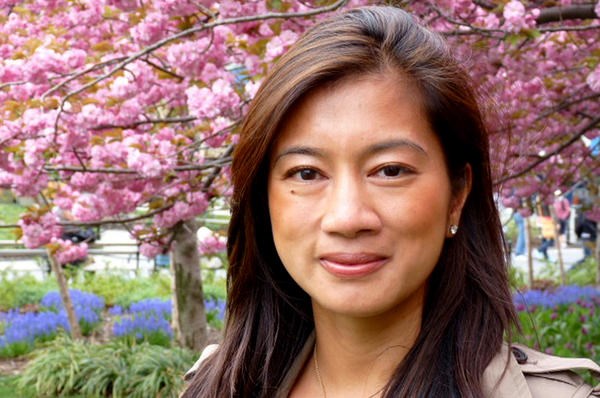 |
New York
After graduating from George town University with a degree in international business, Marisol Lizelle Salvador "wanted it all."
So she parlayed her degree into a great job with a world-class Wall Street firm, made big bucks, and lived the life of a young mover and shaker on the fast track to a top career in the financial world.
Yet, after actually achieving the success she'd envisioned, she realized that "having it all" felt more like "not having enough."
A first-generation Filipino-American, Ms. Salvador grew up in an upper-middle class home on Long Island, N.Y. Her father, a doctor, and her mother, a nurse, had immigrated to the United States in the 1960s, where they raised their five children to seek the American dream.
At the age of 11, however, Salvador took a trip with her parents to the Philippines. There she understood for the first time the huge disparity between her life and that of the children she saw begging on the streets of Manila. Those images would profoundly affect her for years to come.
Her family lived what seemed a charmed life in the US, but their happiness turned to sorrow when Salvador's eldest brother, John David Vincent, was killed at age 14 by a drunken driver.
Salvador felt her brother's loss deeply, but it wasn't until years later that she found a way to honor his memory. As she found herself on her rise to success, she began to wonder, in effect, "Is that all there is?"
She contrasted the amazing abundance in her life with the plight of those desperate children in the Philippines without food, shelter, or even parents to care for them.
How could she give back, as her parents had always taught her? And what could she do to honor her brother's life?
Her soul-searching led to a new calling. She returned to the Philippines in 2004 and contacted a family friend, Father Florentino "Boyet" Concepcion. Father Boyet ran St. Martin de Porres, a home for children that was desperately in need.
Salvador quit her job, and in 2005 she founded the John D.V. Salvador Foundation (JDVSF), in memory of her brother. "Perhaps our foundation could help provide opportunities for these children," she says.
In the beginning, St. Martin housed 42 children in two retrofitted school buses and a one-story house. Today, JDVSF and St. Martin support 88 children and provide dormitories; a farm and pond for vegetable, rice, and fish cultivation; staff cabins; and a multi-use dining-hall complex.
But the tasks ahead are enormous, Salvador acknowledges. Many of the children have lived their entire life on the streets. The goal, Salvador says, is to shepherd these children so they can become fully functioning, self-sufficient adults.
One source of support is the congregation of a small Roman Catholic church in Eggenwil-Widen, Switzerland.
"We were looking for a project that would support the needs of people in other parts of the world," says Edith Rey Kuhntopf, who heads the small church. "Having seen photos of the village under construction and learning of how carefully the project was managed … we knew it was the right project for our parish."
To date, JDVSF has met a specific building goal each year. Its current project, building a halfway house in Manila for kids in vocational training, will be completed in 2012.
Only 3 percent of JDVSF's funds go to administration costs. Salvador, the board of directors, and most of the staff work as volunteers, with three social workers and a cook in the Philippines drawing a salary.
"Lizelle is remarkable in her pursuit to provide the disadvantaged children in St. Martin de Porres an opportunity for a sustainable future," says Annie Yeo, the director and head of corporate social responsibility for Deutsche Bank in Asia in an e-mail. The bank has been supporting JDVSF since 2006 and "we have been impressed by what she has been able to deliver," Ms. Yeo says.
One teen, Christian Avon Garcia, tells of being dropped off eight years ago at an orphanage by his destitute mother. His father had died, and his siblings were dispersed to orphanages around Manila.
Christian, who has been at St. Martin for two years, says that going to school was something he could only dream about before.
"For me, St. Martin means a new life.... I still get lonely because I do not get to see my family." he says. "But St. Martin has helped me redirect my life. I discovered my skills in art. I paint in rich colors to forget my hurtful past."
While the work will continue at St. Martin's in partnership with JDVSF, Salvador also plans to take JDVSF to other countries. Working with strong local partners will prove critical to the foundation's success, she says.
Today, as Salvador takes each step one at a time, day by day, her life may not look like the high-powered one of her college dreams. But she has no doubt that she has made the right choice.
And if you ask her, she'll tell you she's right back on top.
Page created on 7/20/2011 12:00:00 AM
Last edited 1/5/2017 7:06:49 PM
